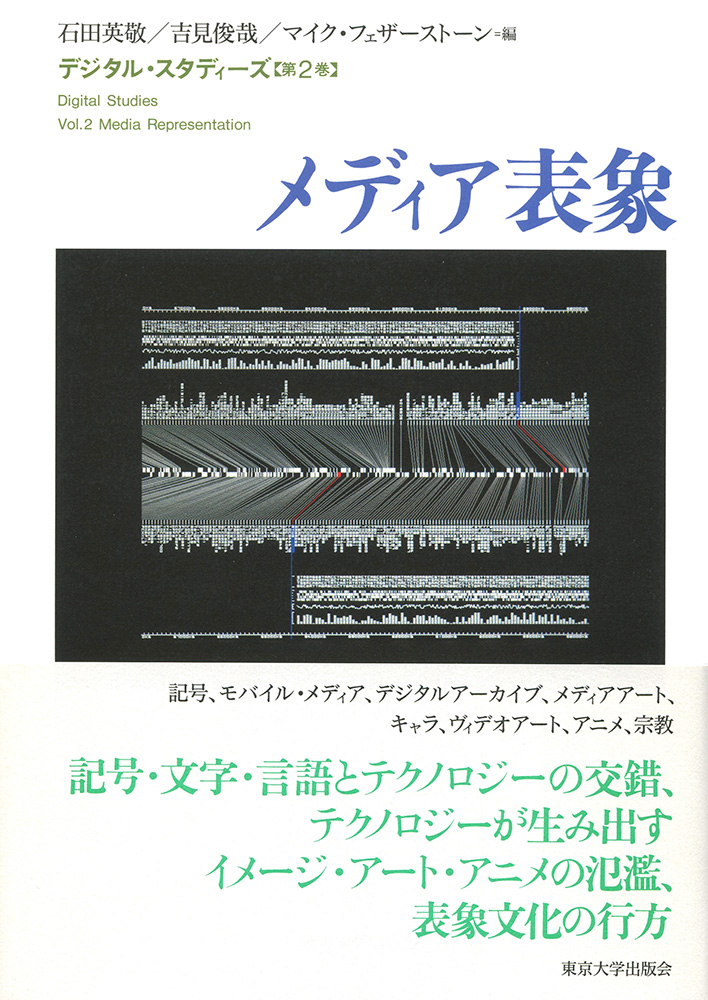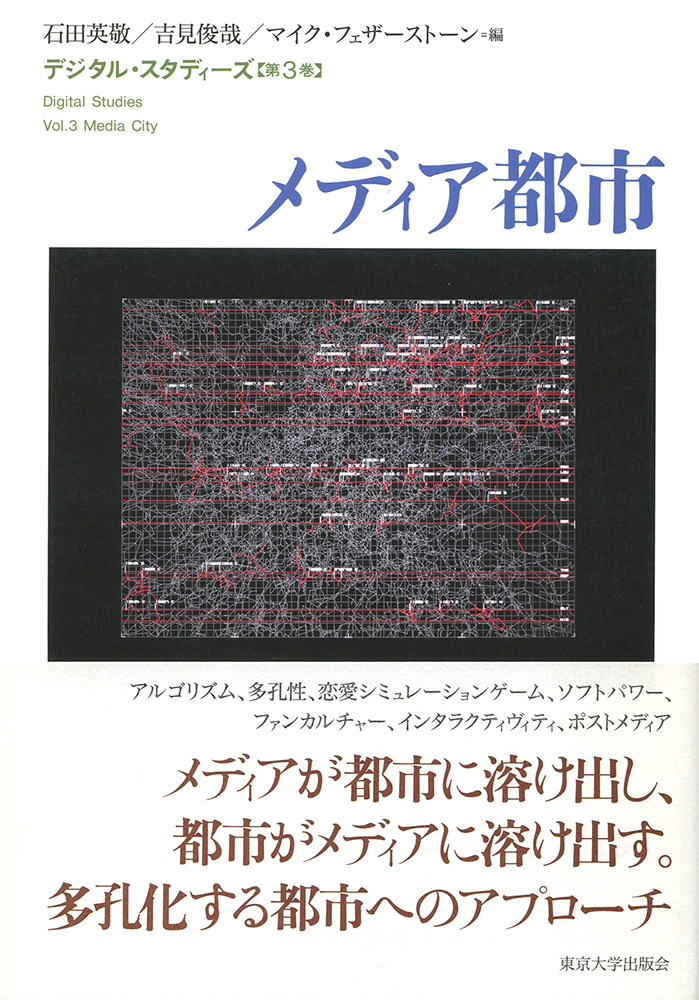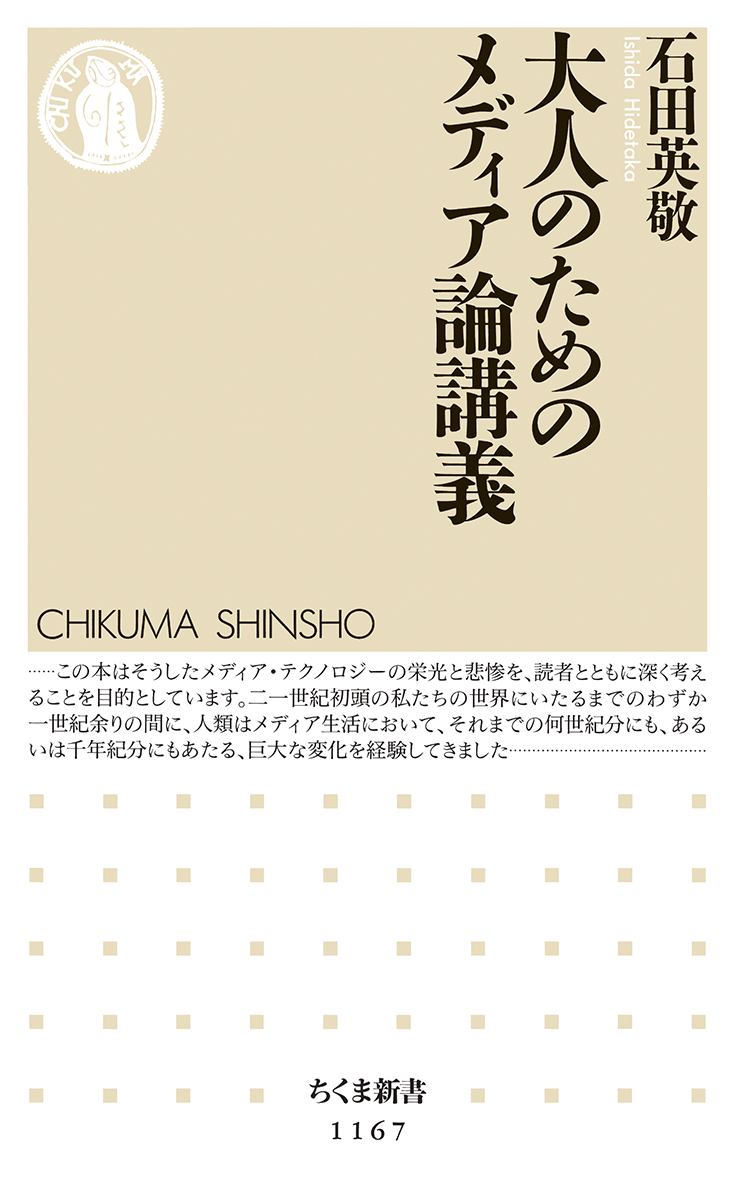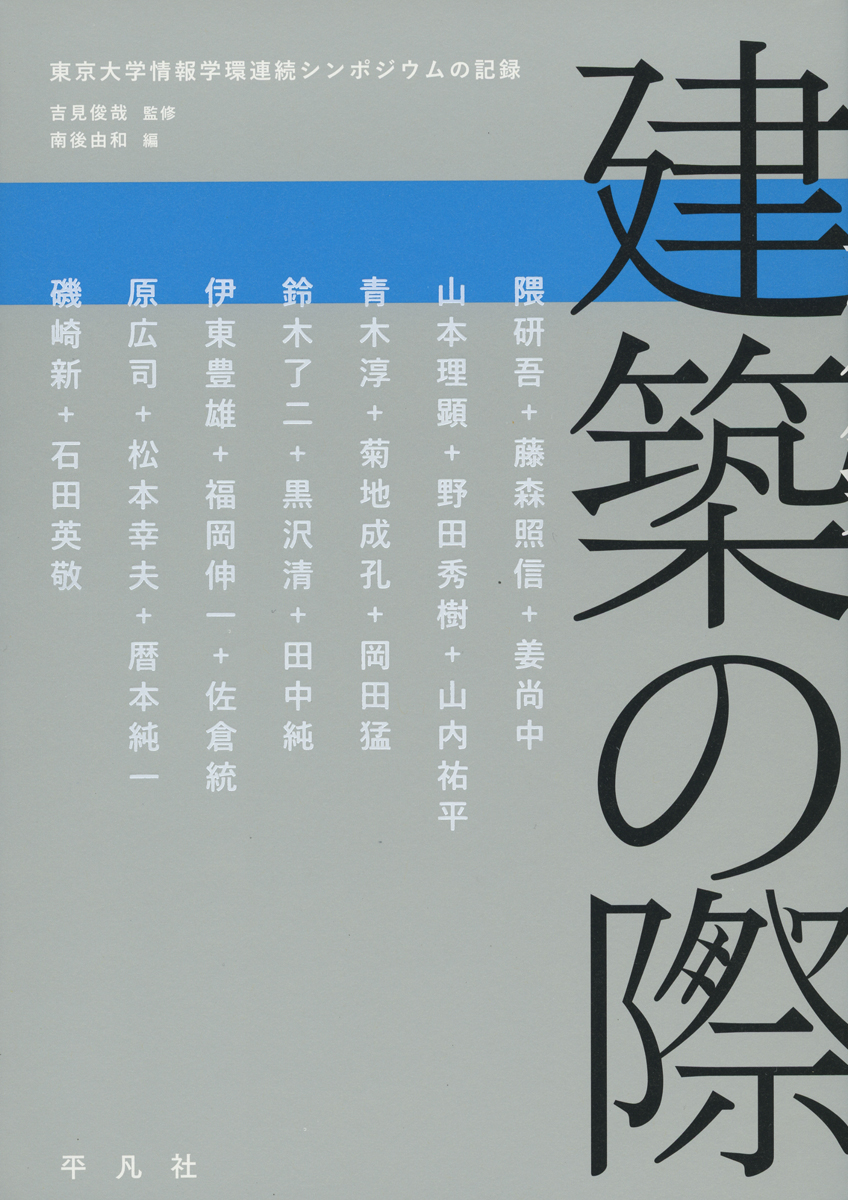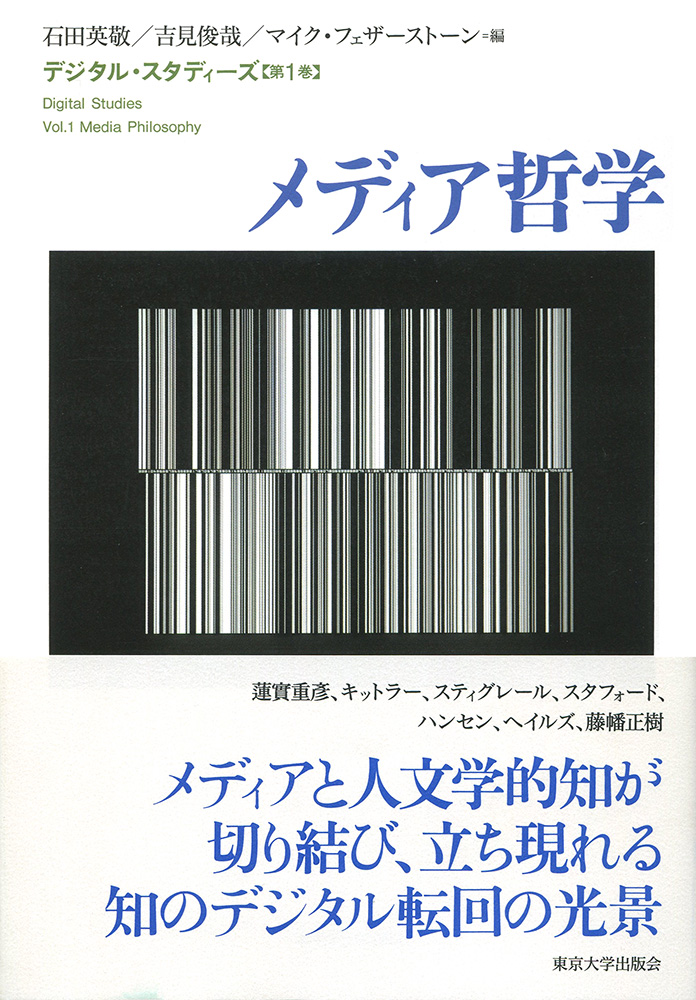
Title
Digital Studies 1 Media Tetsugaku (Media Philosophy)
Size
240 pages, A5 format
Language
Japanese
Released
July 31, 2015
ISBN
978-4-13-014141-3
Published by
University of Tokyo Press
Book Info
See Book Availability at Library
Japanese Page
The 20th century was the period in which we witnessed a sudden rise in media studies.
In the 19th century, technological transformation of media and communication, starting with the invention of the photography, telegraph, telephone, and phonograph, dramatically change human civilization, laying the groundwork for a mass society in which politics is swayed by public opinion and propaganda and marketing are used to manipulate mass psychology. Along with this great transformation of civilization, the frontiers of interdisciplinary media research and scholarship were expanded, and diverse research in the humanities as well as fields such as social theory, and information theory that study humanity, culture, and society steadily burgeoned. Today, all manner of disciplines in both the humanities and sciences, from nanotechnology, computational science, and neuroscience to law, economics, cultural studies, social theory, and the arts are involved in media research.
Meanwhile, as is evident when thinking about the history of writing, books, and the print, media is a human knowledge technology and means to disseminate and store knowledge. The reason why media studies emerged in the 20th century is because the modern civilization based on the printing press, which Marshall McLuhan called the Gutenberg Galaxy, was no longer self-evident. Civilization has shifted from one in which knowledge is organized in printed books and newspapers to one in which knowledge continues to be generated through new types of media, new concept is born, and culture itself is organized. The media studies that rose to prominence in the 20th century entails epistemological and ontological questions regarding the conditions that give to rise to knowledge.
In 2007, the editors of this volume assembled leading media studies theorists from around the world and hosted an international symposium titled “Ubiquitous Media: Asian Transformation” at the University of Tokyo Interfaculty Initiative in Information Studies. At the start of the 21st century, how should we view “media that is becoming evermore ubiquitous”? The symposium was an attempt to identify a new paradigm for “knowledge on media” in the age of digital media.
Digital Studies 1: Media Philosophy compiles the discourse of these main theorists who mark the starting point of media studies in the digital age. It is a manifesto of the new “knowledge on media” that is to be developed.
Media studies was born from the analog revolution of the 20th century and served to radically reexamine modern knowledge, which, up to that point, had been based on the print media. Today, at the start of the 21st century, the second media revolution, the “digital revolution,” brought about by the advancement of computer technology is shaking the very foundation of human civilization on an unprecedented scale. In addition to investigating civilizations in which digital media is ubiquitous, digital studies is seeking a paradigm for understanding the “digital turn of knowledge.”
The book is an introduction to the philosophy of media in the digital age, as presented by the leading media theorists of today.
(Written by Hidetaka Ishida, Professor, Interfaculty Initiative in Information Studies / 2018)



 Find a book
Find a book


